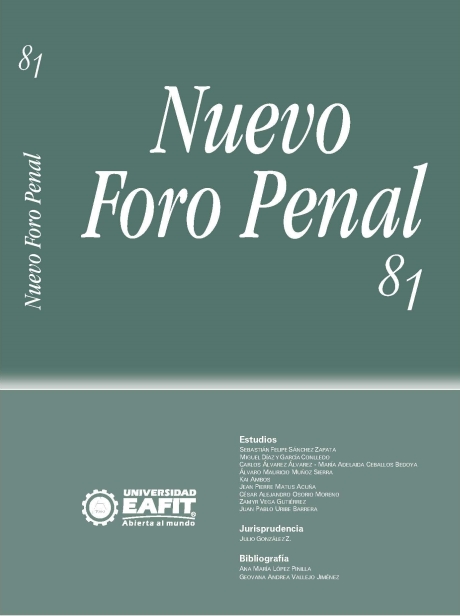Citizen attitudes toward crime and punishment : a pilot study at EAFIT , Medellín University .
Main Article Content
Keywords
Punitive attitudes, punitive populism, Criminal law, Hobbesian populism.
Abstract
In order to justify an expansionist criminal policy, it is usual to appeal to the fact that this one responds to the popular claim, a social demand for security. However, current academic efforts in criminology have refuted this hypothesis. With wide empirical research, it has been proven that there isn’t a direct relationship between the punitive desires of society and the existing expansionist criminal policy and, likewise, public is not a monolithic block of punitive attitudes. Such research has not been developed yet in Colombia, even when in several occasions the exercise of the State’s punitive power has been extended to respond precisely to a supposed call from society, to the “get tough” trend requested against crime. The article shows some of the results of a research that proposes an empirical quantitative approach to a categorization of the Colombian attitudes toward crime and punishment through the development of a pilot study on the already referred topic at Universidad EAFIT. This one allows us questioning some assumptions that have been pivotal axes on this matter, mainly the one that could well be called “the myth of the punitive Colombians “, an idea often used to legitimize the current Colombian criminal policy.

